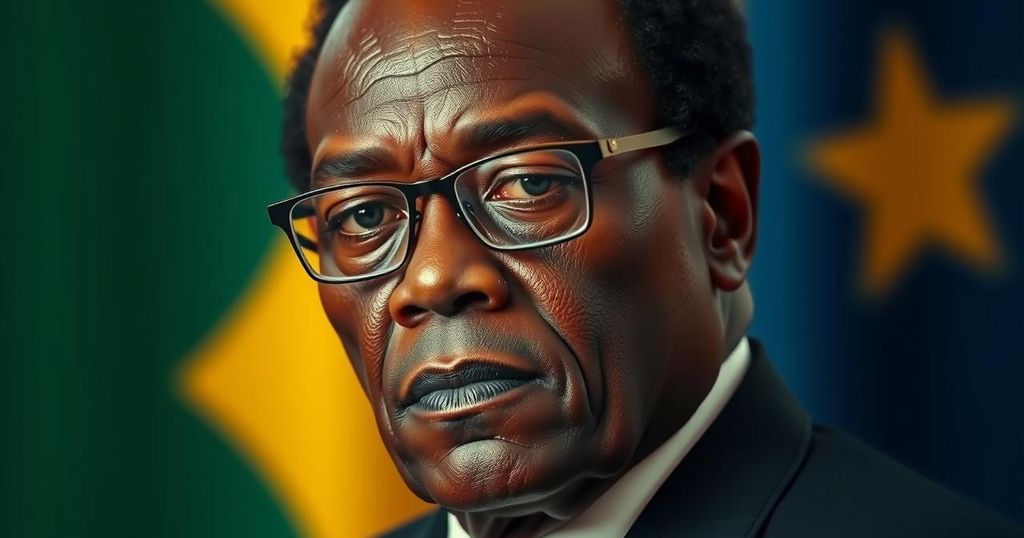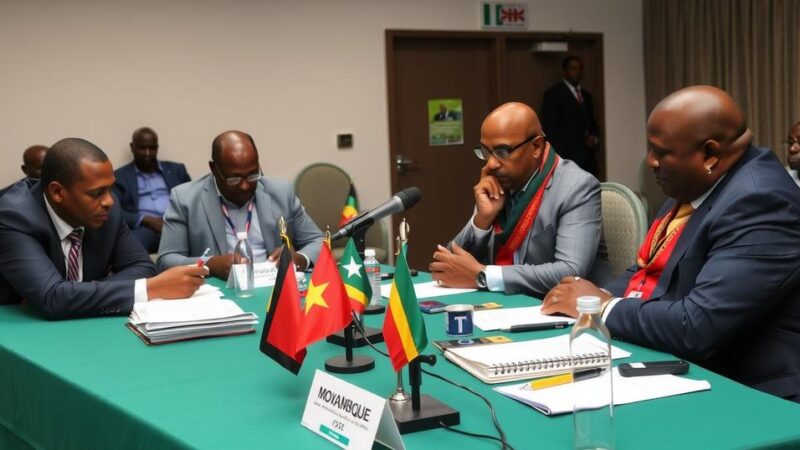Zimbabwean President Emmerson Mnangagwa has publicly reiterated his calls for the United Kingdom to apologize and compensate Zimbabweans for colonial injustices from 1890 to 1980. His statements were made during a recent commemorative event and coincide with a new initiative to investigate the impacts of British colonialism, as well as plans to pursue legal action against Britain for reparations.
Zimbabwean President Emmerson Mnangagwa has renewed his demand for the United Kingdom to issue an apology and provide reparations for the injustices faced by indigenous people during the colonial era, spanning from 1890 to 1980. During a memorial service for a prominent official from the ruling ZANU PF party at the National Heroes Acre in Harare, President Mnangagwa emphasized the need for the British government to acknowledge its historical responsibilities toward Zimbabwe and respond to the ongoing calls for justice. He reiterated these demands while announcing a new initiative aimed at examining the effects of colonial rule on Zimbabweans and indicated intentions to pursue legal action against Britain. In his remarks, he commended the efforts of the Zimbabwe National Elders Forum in documenting the untold narratives of suffering inflicted by British colonial rule, which he described as vital for acknowledging the historical injustices endured by the nation. This initiative aims to shed light on the traumas inflicted by British authority and the resultant loss of lives and livelihoods.
The topic at hand revolves around the historical context of Zimbabwe under British colonial rule, particularly the impact of this period on the indigenous population from 1890 to 1980. The call for reparations has gained traction as nations revisit their colonial past, and leaders like President Mnangagwa are voicing the need for accountability from former colonial powers. The discourse focuses on recognition, justice, and reparative measures for the injustices perpetrated during colonialism, highlighting the socio-economic repercussions that still resonate within Zimbabwean society today.
In conclusion, President Mnangagwa’s emphatic appeal to Britain underscores a broader movement for historical accountability and reparations in post-colonial states. His calls for an apology and compensation reflect deep-rooted grievances that continue to challenge the socio-political landscape of Zimbabwe. The initiatives put forth by local elders signify an important step towards documenting and confronting the legacy of colonialism, advocating for recognition of past injustices as a means to forge a path toward healing and reconciliation.
Original Source: www.socialnews.xyz







